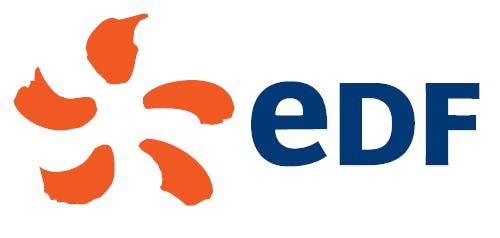The following table assesses the EDF group’s contribution to the other UN Sustainable Development goals:
| Sustainable development Objectives | EDF’s contribution to each of the Objectives |
Details of commitments, policies and actions carried out by EDF (§ DPEF) | |
|---|---|---|---|
| Eradication of poverty | Equality, diversity and inclusion § 3.3.3 ; Energy poverty and social innovation § 3.3.4 | ||
| Food security and sustainable farming | Integrated and sustainable water management § 3.2.3 | ||
| Health and well-being | Health and security for all § 3.3.1 | ||
| Quality education | Biodiversity § 3.2.1 ; Ethics, compliance and human rights § 3.3.2 ; Responsible development of industrial sectors § 3.4.3 | ||
| Reduced inequalities | Ethics, compliance and human rights § 3.3.2 ; Responsible regional development § 3.4.2 | ||
| Marine aquatic life | Biodiversity § 3.2.1 ; Integrated and sustainable water management § 3.2.3 | ||
| Peace, justice and strong institutions | Ethics, compliance and human rights § 3.3.2 ; Dialogue and consultation with stakeholders § 3.4.1 | ||
| Partnerships to meet obejctives | Responsible regional development § 3.4.2 | ||
3.8.2 Compliance with best international standards
Global Compact (1)

The United Nations Global Compact brings together, under the aegis of the UN, companies and NGOs committed to 10 guiding principles articulated in four areas: human rights, labour rights, the environment and the fight against corruption. EDF has been committed to the United Nations Global Compact since 2001 and has
published a Communication on Progress (CoP) at the Advanced level every year since 2012.
The Group also complies with the Declaration of the Rights of the Child, the Convention on the Elimination of All Forms of Discrimination Against Women, the OECD Convention on Combating Bribery of Foreign Public Officials in International Business Transactions, and the United Nations Convention against Corruption. EDF
promotes international human rights law by recognising the ILO’s fundamental conventions, which guarantee fundamental labour principles and rights, and the fight against discrimination.
Global Reporting Initiative (GRI) (2)

The GRI is an independent international non-profit organisation created in 1997 by the non-profit CERES (Coalition for Environmentally Responsible Economies) and the UNEP (United Nations Environment Programme). GRI helps companies and governments around the world to understand and communicate their impact on critical sustainable development issues such as climate change, human rights, governance and social well-being. This enables concrete actions to be taken to
create social, environmental and economic benefits for all.
EDF has a long history of integrating GRI Standards as they evolve. A table comparing the Group’s indicators and those proposed by the GRI is available on the edf.fr website and in the ESG Pack.
Sustainability Accounting Standards Board (SASB) (3)

Created in 2011, the SASB (Sustainability Accounting Standards Board) is an independent, non-profit standard-setting body that develops and maintains reporting standards enabling companies around the world to identify, manage and communicate non-financial and financial information of material importance to investors. The SASB standards are evidence-based, developed with broad market participation and designed to be beneficial to companies and useful to investors. The SASB has established standards specific to 77 industry sectors identified in its Sustainable Industry Classification System® (SICS®).
EDF is the first European energy company to act as an advisor within the SASB organisation. (4) As such, EDF has been proactively involved since 2020 in the process of revising this standard to enable its use worldwide. In 2021, EDF was one of the main contributors to the SASB “Globalization Project” (5), which remains to this day, for certain subjects, specific to the American market, particularly in terms of the environment or regulation.
(3) sasb.org
(4) sasb.org/standard-setting-process/standards-advisory-group/#if
(5) sasb.org/standard-setting-process/active-projects/standards-internationalization-advancement
